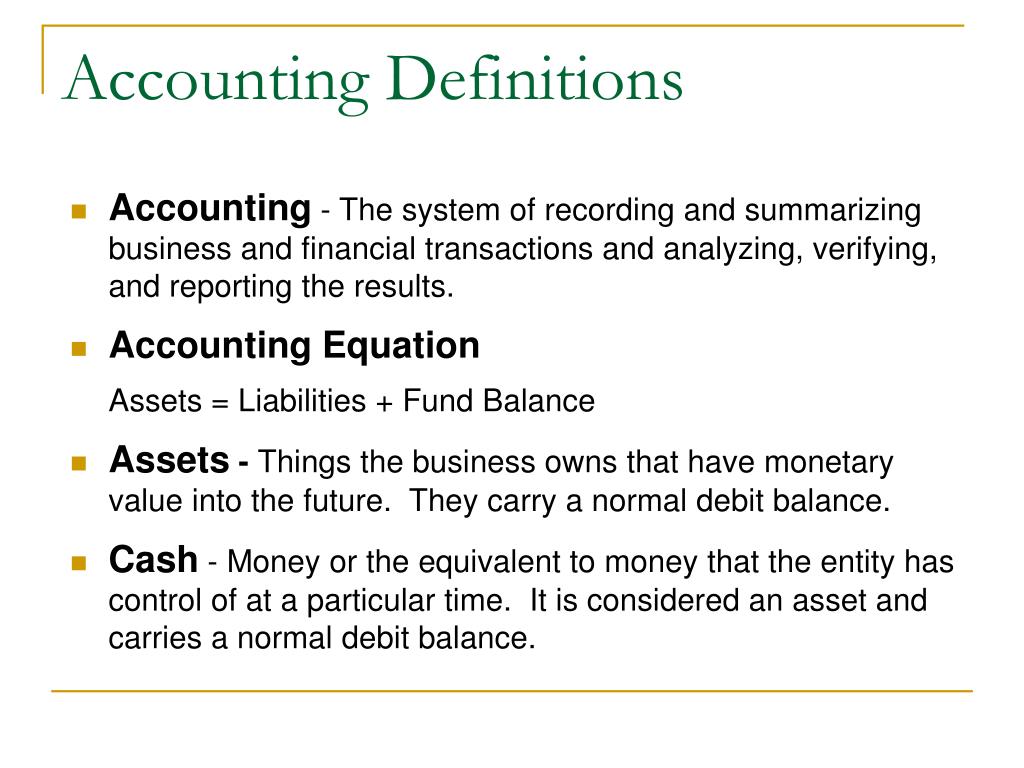
Prospective investors are more likely to invest in your business when you have organized financial information. Investors will be able to make better, well informed, decisions which is the ultimate purpose of bookkeeping.īookkeeping is not only for current investors but for future investors too. Bookkeeping allows investors to have up-to-date and accessible information. The balance sheet, income statement, and cash flow statement all present the value of your business.Īs stated previously, the product of bookkeeping is financial statements. Investors want to know the financial performance of your business to be able to want to quantify the value of their investment.

This has favorable tax benefits for your business. For example, if you have regular meetings with your clients, you might decide to provide lunch during your meetings. With bookkeeping, you and your CPA can structure certain expenses to be more favorable. It gives your CPA the necessary information to properly categorize revenues and expenses. Bookkeeping will give you the clear picture of what exactly works or doesn’t work.īookkeeping not only helps with planning for strategic purposes but also plays a major role in tax planning. In order to plan for the future, you have to have a good understanding of the past. How can you expect to make profitable decisions without financial information to back it up?īookkeeping presents the past financial performance of your company. In order to make the best decisions possible, you need to have access to all available information. With analysis comes better decision making. This type of analysis allows to focus on your company’s strengths and improve on its weaknesses. While analyzing financial statements, you can track your cash inflows and outflows.īookkeeping gives you information on which business lines are working or not working. Financial statements should be regularly generated and used for analysis. The product of bookkeeping is financial statements. Keeping your financial records organized makes it easier to locate and provide to appropriate parties.īookkeeping is important because it helps with business analysis. It is a tool used by management to analyze business performance. Being disorganized with your books could cause your relationships with these parties to be compromised or terminated altogether.īy definition, bookkeeping is the organization of financial information. If you don’t provide records requested by investors or lenders, that could mean a stoppage of cash flow and so on. If you don’t provide records requested the IRS, that could mean penalties and fees. Being able to provide the information requested by these parties are vital to your ongoing operation. There are a few parties that are interested in your company’s financial records – the IRS, employees, customers, investors, and lenders. Instead of scrambling for receipts or invoices, all of your financial information is organized on one central system.īeing organized is a skill every business owner should have. You should be able to find information regarding your business at any time. With a bookkeeping process in place, you can have financial information ready for tax time.

In order to know how much you earned, you have to know what your business earned first.

As a business owner, a large part of your income comes from your business. Sound familiar? The tax filing process can be made more efficient by simply having a bookkeeping function within your company.īookkeeping is important for filing your personal tax return too. And every year, millions of business owners are scrambling through their desk to find missing paperwork. In most cases, your business has to file a tax return every year. With a budget, you can plan for future expenses and the anticipated resources that would cover those expenses. When income and expenses are properly organized, it makes it easier to review financial resources and expenses.Ī budget creates a financial roadmap for your business. Still not convinced that your focus needs to be on bookkeeping? Below are 15 reasons why bookkeeping is important.īookkeeping is important because it helps you budget. Without bookkeeping or accounting, you are blindly driving your business. In fact, “poor accounting” is one of the top reasons businesses fail. Besides the fact you are required under law to maintain accurate books and records, doing so will save you frustration later on.

Yet still, many businesses fail to implement this integral process. Bookkeeping is important for helping you maintain accurate financial records.


 0 kommentar(er)
0 kommentar(er)
